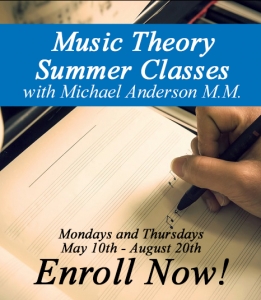Non Discrimnation Policy: The Great Books Academy does not discriminate on the basis of race/ethnicity, color, national origin, sex, disability, veteran status, or age, in the administration of any of its employment, educational programs, admissions policies, any scholarship and loan programs, athletics, recreational, and other administered programs or activities. The Great Books Academy is a d/b/a of the Western Civilization Foundation.
The ACE College Credit (“ACE Credit”) Recommendation Service. The American Council on Education’s College Credit Recommendation Service (ACE CREDIT) has twice evaluated and recommended upper division college credit for all 8 courses (totaling 48 credit hours – 6 per semester) of our Great Books Program, and has also reviewed and recommended 3 lower division college credit hours for each of our four Theology Online courses (so 12 hours total for those theology courses).
For decades, colleges and universities have trusted the American Council on Education (ACE) to provide reliable course equivalency college credit recommendations to facilitate credit award decisions. The structure of a college or university degree program or departmental regulations may affect acceptance of ACE CREDIT recommendations. Ultimately, every college and university has the discretion to accept credit for ACE CREDIT recommendations, or not, as they see fit, so be sure to contact the college (usually the credit transfer expert in the admissions office) where you intend to apply before starting the application process to find out their policies and procedures beforehand.
The ACE CREDIT College and University Network. The numerous colleges and universities (about 1,600) listed on the ACE website are those which actively support and consider for transfer the ACE credit recommendations.
From the Joint Statement on the Transfer and Award of Credit by the American Association of Collegiate Registrars and admissions Officers, the American Council on Education, and the Council for Higher Education Accreditation:
“Each Institution is responsible for determining its own policies and practices with regard to the transfer, acceptance, and award of credits. Institutions also have a responsibility to advise the student that the work reflected on the transcript may or may not be accepted by a receiving institution as bearing the same (or any) credits as those awarded by the provider institution, or that the credits awarded will be applicable to the academic credential the student is pursuing.” [text date: 5/11/2010]
The Great Books Program is a fixed program, meaning it does not substantially change because it is based on the canon of the great classics (the “Great Books”) of Western civilization, and the pedagogy is based on the Socratic method going back over two millennia to the ancient Greek philosopher Socrates. Therefore, to save costs to students, we do not annually renew the ACE National Guide listing of the Great Books and Theology Online Courses. Similarly, most colleges now require transcripts directly from the “transfer institution.” We are the “transfer institution” from which the credits are earned and therefor provide official transcripts directly to the “receiving institution” – the college(s) to which our students apply. Therefore we discontinued use of the ACE transcript service, which ACE has now discontinued. Instead, the Great Books Academy provides its own official transcripts directly to colleges and universities (“receiving institutions”). As the ACE transcript service relied entirely upon our transmission to them for information of courses completed and grades obtained, which simply duplicated our transcripts at an extra cost to students per transcript, we determined it to be an unnecessary expense and needlessly cumbersome.
Academic institutions establish their own transfer credit policies and procedures. There are approximately 4,500 institutions of higher learning in the US (including c. 230 Catholic ones). That is why we recommend to parents and students that if they have a particular college or university in mind for future transfer of credits from our Great Books Program or Theology Online, that they contact that college or university (usually their admissions department, and ideally a credit transfer expert if they have one) to ask them if they will accept such credits for transfer and with what procedures and regulations.
Nevertheless, in order to diminish some of the uncertainty of college credit-acceptance policies, we have entered into Articulation Agreements with a number of colleges and universities precisely in order to assure that those colleges and/or universities commit to accept our Great Books Program and/or Theology Online courses for college credit, according to the terms of those individual agreements. The very purpose of such agreements is to remove ambiguity regarding credit transfer and acceptance policies between the signatory educational institutions. If you are unclear about what credits they will accept, and for what degree programs, please ask and we will be happy clarify that for you. Thank you. [text date: 5/11/2010]
Class Changes and Program Cancellation: We reserve the right to change, modify or cancel any or all Great Books Program, or Theology Online courses, Socratic or other online classes, including but not limited to times, moderators or online locations, at any time, if circumstances warrant (for example, low enrollment in a given class), in our sole discretion. In that event, any portion of tuition not already used would be refunded on a prorated basis of 1/30th per each week of scheduled class or exams remaining (i.e., of the 9 month September-May academic year) at the time of cancellation. [2010]
FUTURE PLANS. Statements in press releases, publications, online, or made orally, by any principal or agent of the Great Books Academy relating to plans, strategies, economic performance, growth or trends, projection of results or timing of specific activities or investments, and other statements that are not descriptions of historical facts may be “forward-looking statements” within the meaning of the Private Securities Litigation Reform Act of 1995, Section 27A of the Securities Act of 1933 and section 21E of the Securities Exchange Act of 1934. Forward-looking information is inherently subject to risk and uncertainties, and actual results could differ materially from those currently anticipated due to a number of factors, which include but are not limited to, risk factors inherent in doing any activity. Forward-looking statements may be identified by terms such as “may,” “will,” “hope,” “should,” “could,” “expects,” “plans,” “goals,” “intends,” “anticipates,” “believes,” “estimates,” “predicts,” “forecasts,” “potential,” or “continue,” or similar terms or the negative of these terms. Although we believe that the expectations reflected in the forward-looking statements are reasonable, we cannot guarantee future results or conditions, timing, levels of activity, performance of achievements. The Great Books Academy has no obligation to update forward-looking statements. [text date 7/6/2010]




